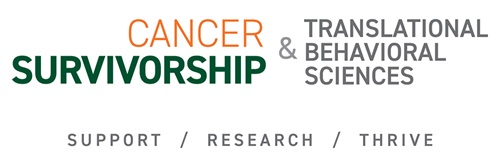- Preguntas frecuentes del programa de supervivencia
-
- Supervivencia del sarcoma de tejidos óseos y blandos
- Supervivencia del sarcoma de tejidos óseos y blandos
- Supervivencia del sarcoma de tejidos óseos y blandos
- Supervivencia del sarcoma de tejidos óseos y blandos
- Supervivencia del sarcoma de tejidos óseos y blandos
- Supervivencia del sarcoma de tejidos óseos y blandos
- Supervivencia del sarcoma de tejidos óseos y blandos
- Supervivencia del sarcoma de tejidos óseos y blandos
- Supervivencia del sarcoma de tejidos óseos y blandos
- Supervivencia del sarcoma de tejidos óseos y blandos
- Supervivencia del sarcoma de tejidos óseos y blandos
-
- Preguntas frecuentes del programa de supervivencia
- Supervivencia del sarcoma de tejidos óseos y blandos
- Supervivencia del cáncer de cerebro y médula espinal
- Supervivencia del cáncer del sistema endocrino
- Supervivencia del cáncer de ojos y ocular
- Supervivencia del cáncer genitourinario
- Supervivencia del cáncer hematológico (de sangre)
- Supervivencia del cáncer de hígado y de las vías biliares
- Supervivencia del cáncer de pulmón
- Supervivencia del cáncer de páncreas
- Supervivencia del cáncer de piel
- Supervivencia del cáncer de estómago
- Mi Bienestar al Día
- Servicios de apoyo para sobrevivientes
- Capacitación y eventos comunitarios de supervivencia
-
- Noticias sobre supervivencia
- Conozca al equipo
- Investigación de supervivencia
- Cancer Survivorship Program
Citas
Para obtener más información o solicitar una cita, llame al 305-243-4922 o envíe un correo electrónico a Atención de supervivencia.
Información
Para obtener más información sobre la investigación de supervivencia al cáncer en Sylvester, llame al 305-243-3329 o envíe un correo electrónico a Survivorship Research.
En el centro oncológico integral Sylvester Comprehensive Cancer Center, lo ayudaremos a controlar el cáncer de páncreas. Si bien el cáncer de páncreas tiene un pronóstico difícil, los expertos de nuestro centro oncológico tienen las herramientas y el equipo necesarios para atender la enfermedad. Mediante el uso de las terapias más actualizadas, los investigadores y médicos de nuestro centro oncológico están a la vanguardia de la atención quirúrgica y el tratamiento médico.
Para los pacientes que tienen síntomas gastrointestinales o de calidad de vida de larga duración, tenemos una variedad de recursos a su disposición.
Los pacientes deben continuar el seguimiento de cerca con los médicos, ya que puede ser necesario continuar con el diagnóstico por imagen mediante radiografías, resonancias magnéticas y tomografías. Además, es posible que se necesiten tratamientos de quimioterapia o radiación. Los pacientes deben preguntar sobre todos los efectos secundarios de los próximos tratamientos y procedimientos.
Está en buenas manos con los médicos y el personal del Sylvester Comprehensive Cancer Center, y esperamos poder atenderlo a usted y a su familia.
